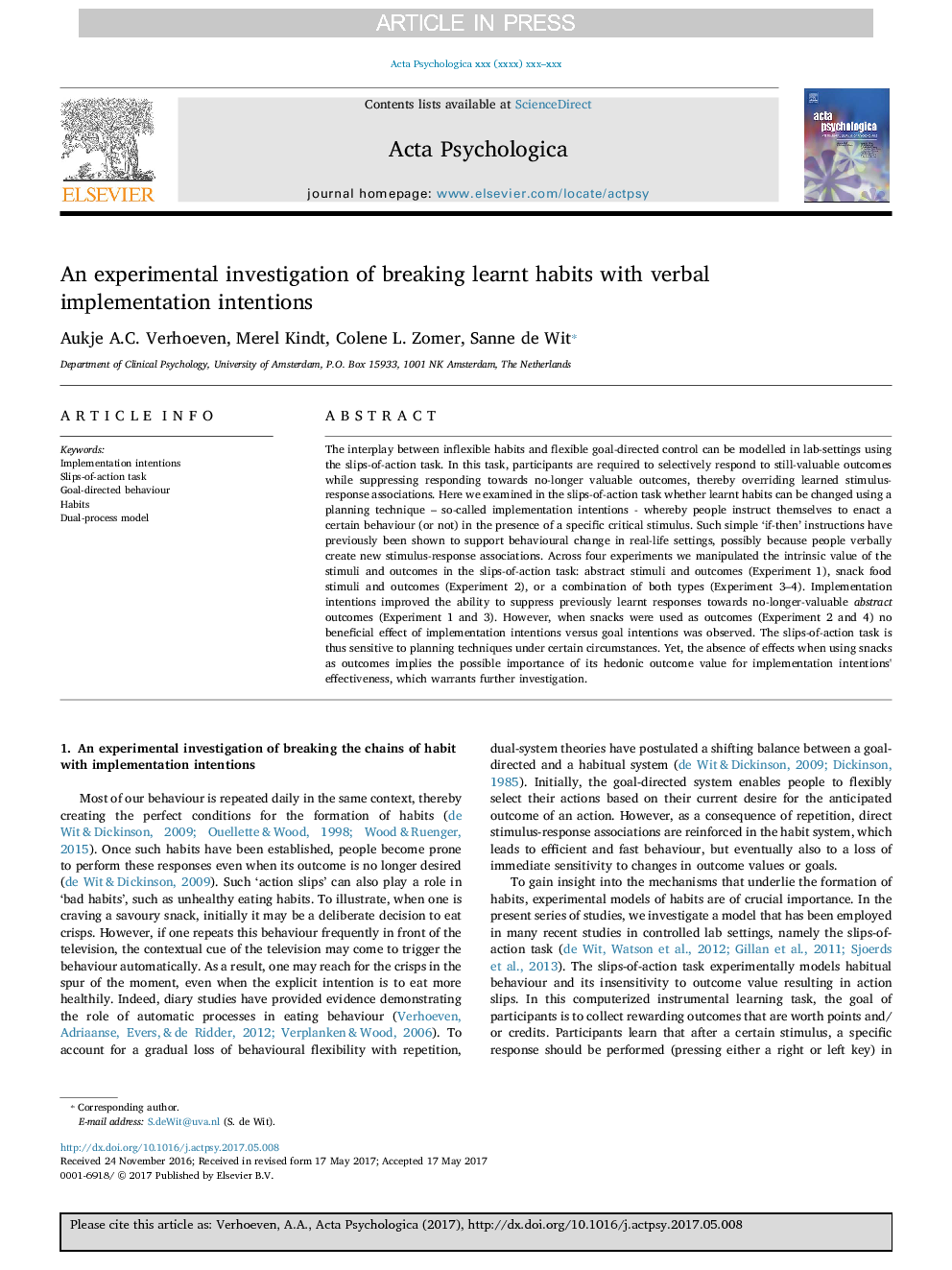ترجمه فارسی عنوان مقاله
یک تحقیق تجربی برای نابودی عادت های آموخته با قصد اجرای کلامی
عنوان انگلیسی
An experimental investigation of breaking learnt habits with verbal implementation intentions
| کد مقاله | سال انتشار | تعداد صفحات مقاله انگلیسی |
|---|---|---|
| 161389 | 2018 | 13 صفحه PDF |
منبع

Publisher : Elsevier - Science Direct (الزویر - ساینس دایرکت)
Journal : Acta Psychologica, Volume 184, March 2018, Pages 124-136
ترجمه کلمات کلیدی
اهداف اجرایی، وظیفه لغزش از عمل، هدف هدایت رفتار، عادت ها، مدل فرآیند دوگانه،
کلمات کلیدی انگلیسی
Implementation intentions; Slips-of-action task; Goal-directed behaviour; Habits; Dual-process model;

